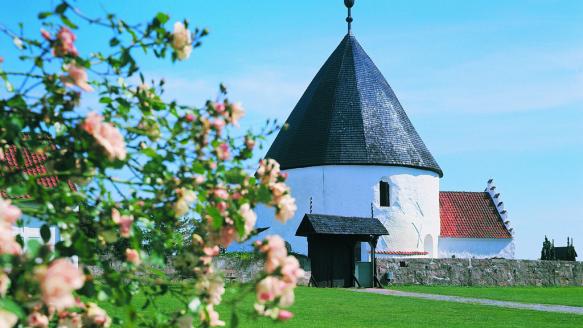FAITH AND ENVIRONMENT
The protection of the Creation is an ecumenical attention underlined in “Laudato Si'”. Wandering across Europe we discover ecologist parishes

European Christians’ attention for environmental protection is nothing new, nor does it belong to the recent past, and it did not spring from the urgent themes up for debate during the COP21 Climate Conference in Paris. Rather, it’s a deep-rooted commitment within a process that has been part and parcel of the ecumenical movement long since, anchored to a theological reflection with a consistent bibliography and countless good practices. In the encyclical “Laudato si” Pope Francis shares the “deep concern” and the “precious reflection” promoted by other Christian Churches and confessions on this theme. Without fanfare and with low-cost investments Christian communities have activated a silent green revolution before it officially came into existence, which especially in Northern Europe has led to the maturation of consolidated experiences. Denmark as pathfinder. Established in 2008, the ecumenical working group “Green Churches” in Denmark (gronkirke.dk) is designed to “support and encourage individuals, communities churches and religious organization to integrate the climate and the environment into their path paths of reflection and into their lives.” To obtain the status of “green church” the parish or religious home must undergo a 48-point check of their environmental behaviour, thereby fulfilling at least 25 requirements. Environmental awareness must be evident in the life of the community through celebrations, initiatives, public awareness events, participation in events promoted by civil society regarding the climate or the environment. The “purchases of the community” for parish festivities or in the meals of the parish priest must give priority to organic food, to fair trade or “zero km” food; oratories must be cleaned with non-polluting detergents, photocopying must be done on recycled paper … Another key criterion is energy consumption: from heating (recommended use of photovoltaics, geothermal energy, firewood) to lighting, it is advisable to resort to all low-consumption tools available on the market. A green parish is also seen in the use of means of transport, so pastoral workers are encouraged to use the bike instead of the car, providing suitable spaces for bicycle parking near the rectory. The same applies to waste disposal with differentiated waste collection, and the use of biodegradable materials; repairing whenever possible, rather than throwing away and buying new things. To date as many as 148 communities are certified “green churches”, following inspection by a dedicated commission of the community that submitted a request. Raising awareness on global questions. Another initiative supported by “gronkirke.dk” is a “relay race for climate change”, an awareness campaign on the consequences of climate change on the world’s poorest Countries.” Upon request, the communities can have a kit with four concrete symbols of climate change (stones from Greenland, surfaced due to the melting of glaciers; corn withered for lack of rain in Malawi; dead corals from the Pacific Ocean and coffee beans from Central America), accompanied by information, text for reflection and prayer which may be used in meetings and liturgical celebrations on the theme of climate. In 2014, a group of volunteers visited the green churches in the country and published an online catalogue with a list of best practices to “facilitate the sharing of concrete actions.” There is a portal for “barter” (Afhent.dk), “to give away things that could benefit others” in addition to being an act of generosity it is an act of respect for the environment because it contributes to waste reduction. Across Europe. The “Green churches” experience is found throughout Europe. In the experience of “eco-congregations” of the United Kingdom, in countless situations of “environmental management for the Churches” of central Europe (The Netherlands, Switzerland, Germany, Austria), in the “Miljödiplomering”, environmental diploma in Sweden, with sister experiences in Norway and Finland. In Italy, the realm of protestant, Waldensian, Methodist churches has given new impetus to the German “green rooster” initiative: a management system developed according to EMAS European certification to reduce the environmental impact of a community “with a view to shared responsibility for a future that is more respectful of Creation.” “Green Rooster” has promoted the international event “Churches for the planet: feeding the planet, safeguarding creation,” which will be held in Milan on September 18 to 20, with the participation of delegates of churches that have obtained this certification.